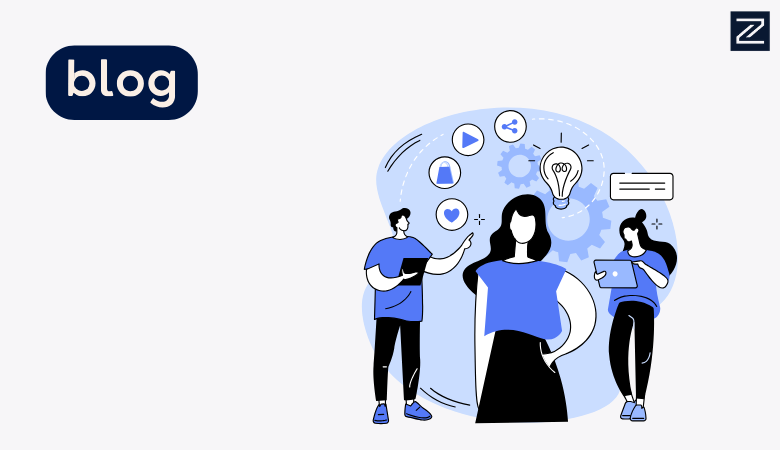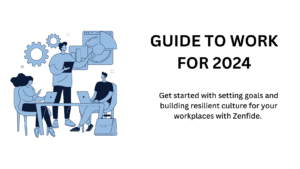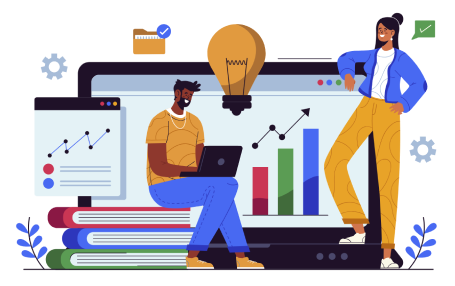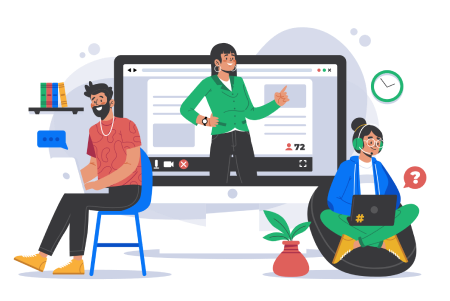A surefire way to ensure consistent growth from your team is to invest in and build their foundational qualities, with the most important of them being behavioural skills.
Behavioural skills are an intangible set of skills that can be built and developed over time and with practice. They are essential to daily functioning, interactions, and relationships. We will look at what types of skills come under it and how one can cultivate and subsequently enhance your team’s performance. Let’s dive in to explore more and how to build these skills for your teams.
1. Technical skills
This is a Kickstarter for success in any job – the right domain knowledge and expertise.
As important as it is to acquire the skills, it is crucial to update knowledge and the ability to execute. Along with developing the right technical skills relevant to transforming workspaces, industry requirements, and trends.
However, it is important to note that technical skills are one component, and there are plenty of other variables to be considered while upskilling.
2. Critical thinking skills
Complementary to technical skills are critical thinking skills. It adds to one’s ability to think strategically and analyse projects, challenges, and problem statements to find the right way forward and strategies.
Critical thinking is a combination of problem-solving, the ability to analyze, strategic thinking, and quantitative skills.
3. Persuasive communication skills
Persuasion is a powerful skill. It is the ability to influence other people’s thoughts and behaviours using convincing arguments and facts.
It is a vital skill to articulate alternative viewpoints and pursue them with audiences, be it one’s team, clients, or any other stakeholder. The art of persuasion includes reasoning, sharing feelings, emotional intelligence, and conveying information with tact.
Persuasion is supported by multiple skills, including logical thinking ability, consideration of multifaceted perspectives, and communication skills.
4. Personal organisation skills
The ability to manage time and prioritize is a powerful skill to build leverage in any workplace. It is the ability to use your own time and resources effectively and efficiently.
The ability to develop sensible strategies for facilitating workflow and efficiency can be a great addition to the value you bring to the table.
5. Manageability skills
Managers and managerial skills play the role of catalysts in any organization or business. From setting processes and mechanisms for boosting productivity, work relationships, and management operations.
It includes the ability to take direction, build active listening skills, and implement ideas to achieve organizational goals.
6. Teamwork skills
In simple words, teamwork enables professionals to perform well within a group, as a team. Teamwork skills are of two kinds, personal and affiliative skills.
Personal skills are internally focused and allow the individual to take an effective role within a team. Affiliative skills are outwardly focused and promote cooperation.
7. Leadership skills
Leadership skills are broad and valuable to workplace success. It boosts and enhances employee management, and retention, and boosts performance and processes across the organization.
Leadership brings invaluable benefits like clear communication, empathy, emotional intelligence, listening skills, and the skill of feedback, amongst many others. One can also observe that leadership ultimately comes to the enmeshing of all the behavioural skills we’ve mentioned above.
Implementing Behavioural Skills in Workspaces
Any skill that benefits you professionally can be acquired and grown through consistent practice, monitoring, feedback, and adapting. We have compiled a brief list of pointers that can be expanded on to fit your expectations and needs to build your team’s behavioural skills.
At Zenfide, we follow a logical flow of steps for building any and every skill. The purpose of our 5-step process is to enable your teams not just to gain knowledge but the right skills to implement it in their daily functioning.
1. Skill Mapping
To build a skill or set a learning milestone, it is imperative to know the gaps, strengths, and lags. For this, Zenfide provides customized learning experiences with the first step of identifying what skills are needed and how to go about developing them. At Zenfide, our science-backed approach and subject matter experts drive this process.
2. Set Learning Goals
Once skill gaps are identified, setting learning goals is effective and boosts self-awareness among learners. It enables teams/ HR and other stakeholders to identify which skill is in priority, whether it is a behavioural skill like communication, management, or an industry-related skill. It can also be a combination of power and technical skills.
3. Learn. Practice. Learn. Repeat
Once learning goals are clear, targeted learning experiences can be developed and executed, enabling your teams to boost their performance, productivity, and in turn, business performance.
Build a learning culture
Once learning experiences enter an organization, it is the first step to building a learning culture. To build a learning culture, willingness to learn, resources to learn, and curiosity are preliminary. The above processes can be catalysts for the same.
4. Growth Tracking
At Zenfide, our learning experiences do not end with just training/sessions. We track, monitor, and provide learning formats to understand your team’s learning growth and how it can be improved. In both behavioural and technical skills, this trend is relevant. For instance, communication is related to research and management.









